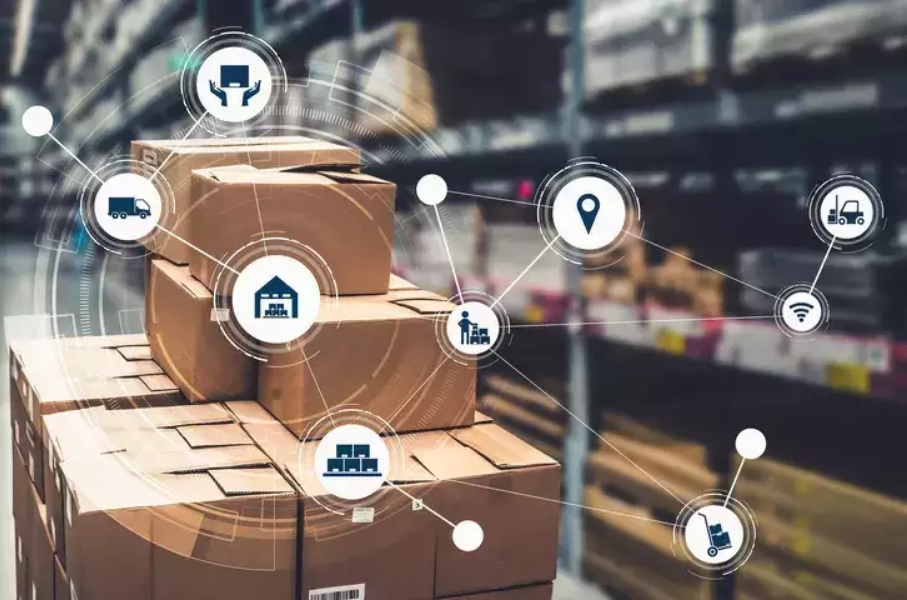
Logistics plays a crucial role in modern businesses, enabling the efficient movement of goods and services from point of origin to the point of consumption. However, traditional logistics systems often face significant challenges such as manual processes, lack of real-time visibility, and data silos. To overcome these limitations, the integration of Low-Code Hybrid Blockchain and Enterprise Resource Planning (ERP) systems presents an innovative solution.
Understanding Logistics ERP
A Logistics ERP is a software system designed to manage and optimize various aspects of logistics operations. It brings together different functions, including inventory management, warehouse management, transportation, order tracking, and demand forecasting, into a unified platform. By centralizing data and automating processes, a Logistics ERP enhances efficiency, improves decision-making, and reduces operational costs.
Integrating blockchain technology into a Logistics ERP provides added benefits. Blockchain ensures data integrity, enhances transparency, and enables secure and tamper-proof transactions. It also facilitates seamless collaboration among supply chain stakeholders, eliminating intermediaries and reducing the risk of fraud.
The Power of Low-Code Development
Low-code development is an approach that allows the rapid creation of applications using visual modeling tools and pre-built components. It reduces the need for extensive coding, enabling even non-technical users to develop and customize software solutions. In the context of logistics ERP systems, low-code development accelerates implementation and allows for agile updates and modifications.
Advantages of low-code development for logistics ERP systems include faster time to market, reduced development costs, and increased flexibility. Visual modeling tools enable business users to map out processes, workflows, and user interfaces, making it easier to align the software with specific business requirements. This empowers logistics professionals to take an active role in shaping their ERP system, promoting innovation and continuous improvement.
Enhancing Efficiency with Hybrid Blockchain
Hybrid blockchain technology combines the benefits of both public and private blockchains. It allows for selective data sharing, ensuring privacy and confidentiality when needed while still leveraging the transparent and decentralized nature of public blockchains. In logistics, hybrid blockchain offers significant advantages.
By utilizing hybrid blockchain within a Logistics ERP, companies can achieve greater operational efficiency. Smart contracts can automate and validate transactions, eliminating the need for intermediaries and reducing costs. Immutable and transparent records stored on the blockchain enhance trust and enable real-time tracking and traceability of goods throughout the supply chain.
Key Modules of a Logistics ERP
A comprehensive Logistics ERP encompasses several key modules:
Inventory Management and Optimization: Efficiently track, manage, and optimize inventory levels, reducing carrying costs and minimizing stockouts.
Warehouse Management and Automation: Streamline warehouse operations through automation, optimizing storage, picking, and packing processes.
Transportation and Route Optimization: Optimize transportation planning, routing, and execution to minimize costs, reduce delivery times, and enhance customer satisfaction.
Order Tracking and Delivery Management: Provide real-time visibility into order status and delivery progress, ensuring accurate tracking and proactive issue resolution.
Demand Forecasting and Planning: Utilize historical data and advanced forecasting techniques to predict demand, enabling proactive planning and inventory optimization.
Implementing a Logistics ERP
Implementing a Logistics ERP involves careful planning and execution. The following steps are crucial for success:
Assess Organizational Needs and Requirements: Identify pain points, define goals, and align them with the capabilities and features offered by different Logistics ERP solutions.
Select the Right Logistics ERP Solution: Evaluate available options based on functionality, scalability, compatibility, and vendor reputation. Consider the specific needs of the business and ensure a good fit.
Integration Challenges and Considerations: Plan for seamless integration with existing systems, such as legacy ERP systems or third-party software, to ensure data continuity and minimize disruption during the implementation process. This may require data migration, system integration, and API development to ensure smooth data flow between systems.
Change Management and Employee Training: Implementing a Logistics ERP involves a significant change in processes and workflows. It is essential to communicate the benefits of the new system to employees and provide comprehensive training to ensure a smooth transition. Change management strategies, including stakeholder involvement and communication plans, should be developed to address any resistance to change.
Successful Logistics ERP Implementations
Real-world case studies demonstrate the successful implementation of Logistics ERP systems:
Company A: Streamlining Supply Chain Operations By implementing a Logistics ERP solution, Company A streamlined their supply chain operations. They automated their inventory management, optimized warehouse processes, and integrated transportation planning. This resulted in reduced costs, improved delivery times, and enhanced visibility across the supply chain.
Company B: Improving Inventory Visibility and Accuracy Company B faced challenges with inaccurate inventory tracking and stockouts. They implemented a Logistics ERP system with real-time tracking and automated inventory management. This improved inventory visibility, reduced stockouts, and increased overall operational efficiency.
Company C: Enhancing Customer Satisfaction and Delivery Speed Company C focused on improving customer satisfaction and delivery speed. With a Logistics ERP system, they optimized transportation routes, enabled real-time order tracking, and automated delivery management. As a result, they achieved faster deliveries, higher customer satisfaction ratings, and improved operational performance.
Overcoming Challenges in Logistics ERP Adoption
Implementing a Logistics ERP may encounter some challenges, including:
Resistance to Change within the Organization: Employees may be resistant to change due to fear of job displacement or unfamiliarity with new systems. Effective change management strategies, including communication, training, and employee involvement, can help overcome this resistance.
Data Migration and System Integration Complexities: Integrating a Logistics ERP with existing systems can be complex, requiring careful planning and execution. Data migration processes should ensure data integrity and continuity, and system integration should be seamless to avoid disruptions in operations.
Ensuring Scalability and Future-proofing: Logistics ERP systems should be scalable to accommodate future growth and evolving business needs. It is crucial to select a solution that can adapt to changing technologies and industry trends to ensure long-term success.
Future Trends in Logistics ERP
The future of Logistics ERP systems holds several exciting trends:
Artificial Intelligence and Machine Learning Applications: AI and ML algorithms can be leveraged within Logistics ERP systems to automate and optimize various processes. These technologies can enable predictive analytics, demand forecasting, route optimization, and intelligent decision-making.
Internet of Things (IoT) Integration for Real-time Tracking: IoT devices can be integrated with Logistics ERP systems to provide real-time tracking and monitoring of goods. This enhances supply chain visibility, enables proactive issue resolution, and improves overall operational efficiency.
Predictive Analytics for Proactive Decision-making: Logistics ERP systems will increasingly incorporate predictive analytics capabilities to anticipate demand, optimize inventory levels, and mitigate risks. This enables businesses to make proactive decisions based on accurate insights.
Cloud-based Solutions for Enhanced Flexibility: Cloud-based Logistics ERP solutions offer increased flexibility, scalability, and accessibility. They allow businesses to access their systems from anywhere, facilitate collaboration, and offer seamless updates and integrations with other cloud-based tools.
The revolution in logistics is being driven by the integration of Low-Code Hybrid Blockchain and ERP systems. Logistics ERP solutions provide comprehensive functionality to streamline operations, enhance visibility, and optimize decision-making. The power of low-code development empowers logistics professionals to shape their ERP systems to meet specific business needs. Hybrid blockchain technology ensures data integrity, transparency, and secure transactions. Successful case studies highlight the transformative impact of Logistics ERP implementations.
To stay competitive in the To stay competitive in the rapidly evolving logistics industry, businesses must embrace innovation and leverage the potential of Logistics ERP systems. By implementing a Low-Code Hybrid Blockchain ERP, companies can unlock significant benefits such as increased operational efficiency, improved decision-making, enhanced customer satisfaction, and reduced costs.
However, the adoption of Logistics ERP systems may face challenges, including resistance to change, data migration complexities, and the need for scalability. Overcoming these challenges requires a well-planned implementation strategy, effective change management practices, and careful consideration of integration and future-proofing requirements.
Looking ahead, the future of Logistics ERP systems holds tremendous promise. Artificial intelligence and machine learning applications will further automate and optimize logistics processes, while IoT integration will enable real-time tracking and monitoring of goods. Predictive analytics will empower businesses to make proactive decisions, and cloud-based solutions will offer enhanced flexibility and accessibility.
The revolutionizing of logistics with Low-Code Hybrid Blockchain and ERP systems is paving the way for a more efficient, transparent, and agile logistics industry. By embracing these innovative technologies and implementing robust Logistics ERP solutions, businesses can position themselves for success in a highly competitive global marketplace. The transformative potential of Logistics ERP systems cannot be understated, and organizations that seize this opportunity will gain a significant competitive advantage in the logistics landscape.






